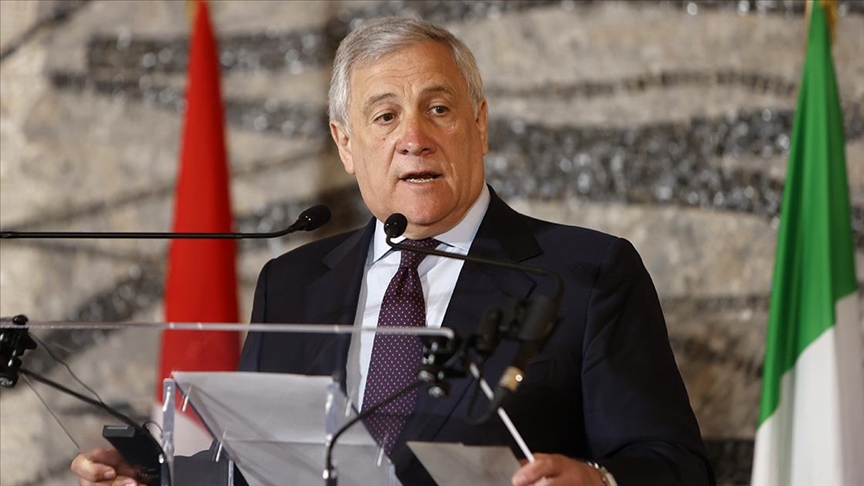ANKARA
In a recent interview with local daily La Stampa, Italy’s Deputy Prime Minister and Foreign Minister Antonio Tajani has advocated for the establishment of an EU army.
Tajani, who leads the Forza Italia party, emphasized the need for a stronger defense cooperation within the EU to maintain peace and prevent conflicts globally.
Citing the ongoing crises in regions from the Middle East to the Indo-Pacific, Tajani argued that the EU, amid powerful players like the US, China, India, and Russia, must possess its own military force.
“If we want to be a peacekeeping force in the world, we need a European army, and this is a fundamental condition for having an effective European foreign policy,” said Tajani, underlining the importance of such a force for the security of EU citizens.
Tajani also called for a change in the EU leadership, proposing a shift to a single presidency system instead of the current arrangement with separate positions for the European Council president and the European Commission president.
This suggested reform aims to streamline decision-making processes within the EU.
Russia swiftly responded to Tajani’s proposal, with Foreign Ministry spokesperson Maria Zakharova expressing skepticism and criticism.
Quoting Tajani’s statement, Zakharova questioned the priorities of the EU, suggesting that before forming a joint army, the EU should focus on developing its own COVID-19 vaccine, ensuring humane protection of its borders in accordance with international obligations, and addressing the refugee and migrant problem.
Zakharova also raised practical concerns about an EU army, urging the EU to understand the logistical aspects, such as the type of fuel military vehicles and aircraft would use.
She pointed out a hypothetical scenario where US President Joe Biden might leverage fuel prices to pressure the EU if they fail to meet certain expectations, questioning the financial burden placed on EU members as NATO countries contributing to a “common fund.”
She also said that if the EU were to establish a joint army, it should understand what fuel military vehicles and aircraft would use.
“Then the US president will come to Brussels and say that he will increase fuel prices if they do not attack the designated targets. By the way, why should every EU member NATO countries pay huge sums to the ‘common fund,’ actually to Washington, to ensure their security, as it is stated?”

